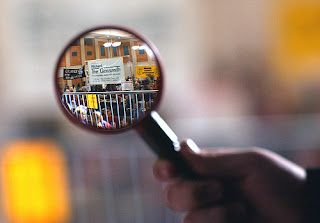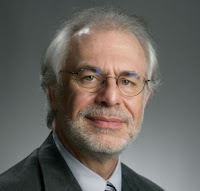In late March, the FBI arrested Terry James Albury, a longtime agent in its Minneapolis field office, for allegedly providing classified documents to The Intercept. The Intercept is an investigative nonprofit news organization dedicated to producing fearless, adversarial journalism. While tracking him down, the bureau crossed a red line that will sour relationships with journalists and whistle-blowers, with negative consequences for everyone. The classified documents in question, on their own, should concern anyone who cares about civil liberties. A set of policies and procedures, the documents outline how the FBI can access journalists’ phone records without search warrants or subpoenas approved by a judge. This is despite a 2013 promise, at the time, by Attorney General Eric Holder to reform rules about spying on reporters after the Department of Justice secretly obtained phone records from "over 100 Associated Press journalists" according to The Washington Post. Holder’s reforms only applied to subpoenas in criminal investigations.
 The Freedom of Information Act (FOIA) is a federal freedom of information law that allows for the full or partial disclosure of previously unreleased information and documents controlled by the United States government. The Federal Government's Freedom of Information Act should not be confused with the different and varying Freedom of Information Acts passed by the individual states. Many of those state acts may be similar but not identical to the federal act. The FOIA was put in place shortly after the illegal unconstitutional act of MK Ultra performed by the CIA, which most of the evidence was burned and some of the surviving documents became classified in 2001. Others, most notably late former President Lyndon B. Johnson, believed that certain types of unclassified government information should nonetheless remain secret.
The Freedom of Information Act (FOIA) is a federal freedom of information law that allows for the full or partial disclosure of previously unreleased information and documents controlled by the United States government. The Federal Government's Freedom of Information Act should not be confused with the different and varying Freedom of Information Acts passed by the individual states. Many of those state acts may be similar but not identical to the federal act. The FOIA was put in place shortly after the illegal unconstitutional act of MK Ultra performed by the CIA, which most of the evidence was burned and some of the surviving documents became classified in 2001. Others, most notably late former President Lyndon B. Johnson, believed that certain types of unclassified government information should nonetheless remain secret.  The solicited documents also identify loopholes in FBI rules allowing undercover agents and informants to infiltrate and spy on members of churches, political organizations and universities which is something, The Washington Post claims that The Intercept said, that even the FBI acknowledged was a “risk to civil liberties.” The FBI used as evidence against Albany FOIA requests made by The Intercept. According to an affidavit for a warrant obtained by Minnesota Public Radio, “on or about March 29 and 30, 2016, a presumed U.S. Person representing an online media outlet … made two separate requests for copies of specific documents from the FBI pursuant to the Freedom of Information Act.” The FBI is able to tell who accesses documents on its network. After The Intercept published the documents, the timing of the earlier FOIA request allowed the FBI to pinpoint Albury as a likely source. “Albury accessed the document on February 19, 2016, approximately one month and ten days prior to the FOIA request” and made images, the affidavit said.
The solicited documents also identify loopholes in FBI rules allowing undercover agents and informants to infiltrate and spy on members of churches, political organizations and universities which is something, The Washington Post claims that The Intercept said, that even the FBI acknowledged was a “risk to civil liberties.” The FBI used as evidence against Albany FOIA requests made by The Intercept. According to an affidavit for a warrant obtained by Minnesota Public Radio, “on or about March 29 and 30, 2016, a presumed U.S. Person representing an online media outlet … made two separate requests for copies of specific documents from the FBI pursuant to the Freedom of Information Act.” The FBI is able to tell who accesses documents on its network. After The Intercept published the documents, the timing of the earlier FOIA request allowed the FBI to pinpoint Albury as a likely source. “Albury accessed the document on February 19, 2016, approximately one month and ten days prior to the FOIA request” and made images, the affidavit said.









